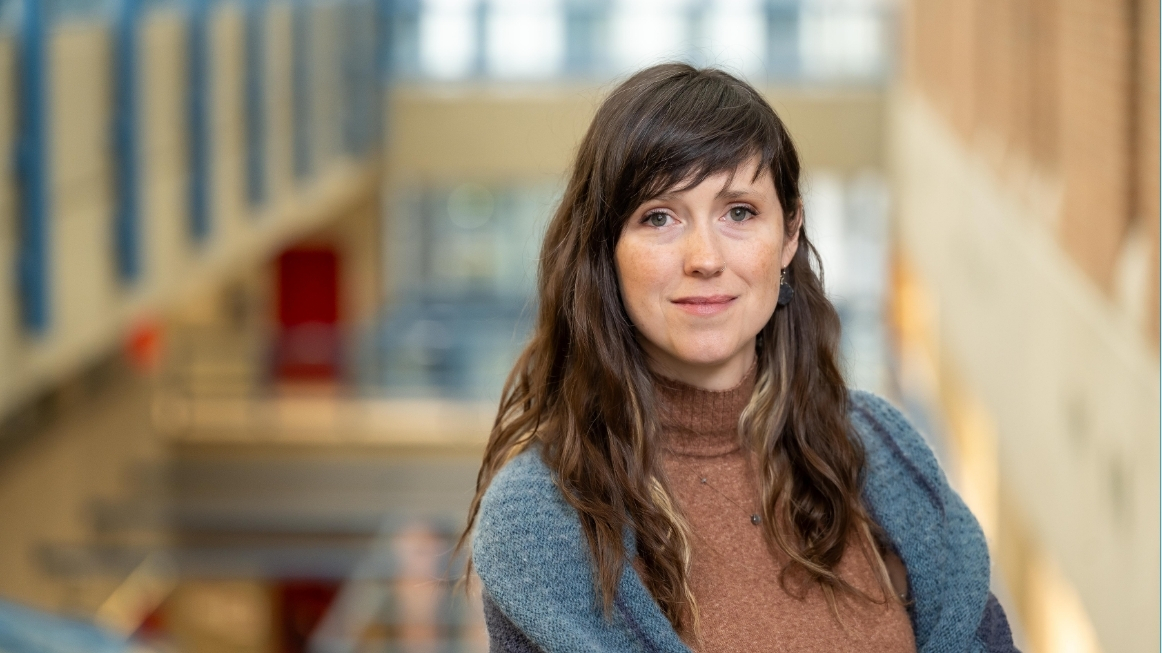

Through her multi-faceted research, Dr. Palombo works to further our understanding on how we form and retain our memories—and how this differs from person to person. She also examines how autobiographical memory influences non-mnemonic functions, with a focus on future imagination and decision making.
Learn more about her latest research Individual Differences in Autobiographical Memory, which was published in the July 2018 issue of Trends in Cognitive Sciences.
“Although we have countless experiences every day of our lives, a lot of what we experience is forgotten,” says Palombo. “In my research, I try to understand why we remember some experiences and not others.”
In a Q&A, Dr. Palombo shares her research, what sparked her interest in studying memory and cognition, and what she does when she’s not in the lab.
First of all, can you tell us a little about yourself?
I was born and raised in Mississauga, a suburb near Toronto. For most of my life, I didn’t venture far from my native land; I completed my undergraduate, Masters, and PhD at the University of Toronto. I finally left Toronto and moved to Boston for my postdoc (at Boston University and the VA Hospital). I’m a scientist, a wife, and—last but not least—a mother to rambunctious 1-year old twin boys.
What kinds of questions do you try to answer through your research?
Although we have countless experiences every day of our lives, a lot of what we experience is forgotten. In my research, I try to understand why we remember some experiences and not others. That is, I’m interested in what factors lead to long-lasting autobiographical memories. Some of these factors relate to characteristics of the events themselves (e.g., their significance, emotional relevance, etc.) but other factors stem from individual differences. I’m especially interested in the effects of emotion (particularly trauma) on memory and how those effects differ from one individual to the next.
Can you give us an example of this in our daily lives?
In 2001, an Air Transat flight that was headed to Lisbon from Toronto ran out of fuel over the Atlantic Ocean. After 30 minutes, which included panic among passengers and crew as they prepared for an emergency landing in the ocean, the pilot managed to land the plane on a military base in the Azores. Miraculously, everyone survived, but this was a harrowing experience to say the least. If you ask people about this event years later (as we did in a study published in 2015), what would they remember? How would this differ from their memory for an ordinary event that occurred around the same time? Why does one person remember this event in such vivid detail, while another remembers much less? What are the neural mechanisms of these differences? These are the kinds of questions I’m interested in.
How did you become interested in this line of research?
When I applied to graduate school, I didn’t really know what I wanted to study—but I knew that memory was close to the top of my list. This is what brought me to Brian Levine’s lab. I was drawn to his approach–he studied memory naturalistically and he developed really great techniques for doing so. Shortly after I started in the lab, I was fortunate enough to meet with Endel Tulving. After a short and friendly exchange, Dr. Tulving gave me a stack of articles to read and told me we would meet again after I had read them. The stack was so tall I could barely carry it back to my office. After that I was hooked.
Can you tell us about any new research that you are particularly excited about?
In the last few years, I’ve become quite interested in how autobiographical memory and prospection (imagining autobiographical events that have not yet occurred), influence other forms of cognition, including decision making. These research areas have largely been studied in isolation, but some exciting work has recently shown how they intersect, both at the cognitive and at the neural level. This research interests me because it gives us insight into the adaptive value of memory.
Do you have a motto?
When you are an academic, it feels like you are perpetually waiting for the next thing to happen. Consequently, you are always trying to skip ahead. But then life passes you by. So I am trying to just live in the moment and not let that happen. I guess that is my motto.
What do you like to do in your free time?
When I am not chasing around the babies and trying to keep them from harm’s way, I spend a lot of my free time catching up with family and friends in Toronto (or Boston). Otherwise, I like to spend my time exploring Vancouver and enjoying this beautiful city! Everything is new and exciting!
You can connect with Dr. Palombo on her website or on Twitter @DanielaJPalombo.


